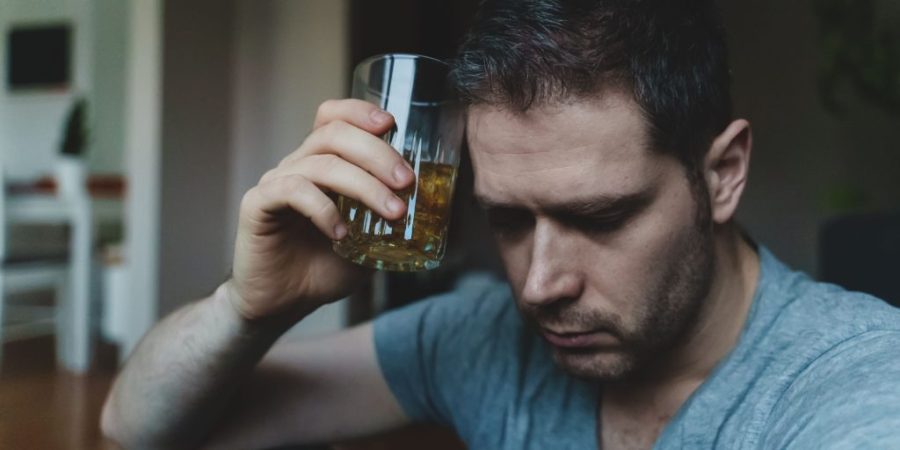
From Springbrook Hospital –
In the United States, it’s socially acceptable to regularly drink alcohol. It’s even encouraged to drink as a form of escapism after a rough week at work or following a difficult breakup. But despite the normalization of this habit, its correlation to alcohol abuse is frequently hidden. Too often alcohol and depression silently go hand-in-hand, contributing to the recorded 140,000 alcohol-related deaths each year.
About one-third of adults struggling with alcohol misuse also have a mental health disorder such as depression. However, receiving treatment to overcome your addiction and manage your mental illness symptoms make it possible to improve your mental and physical well-being. Continue reading below to learn more about the connection between alcohol and depression and how Springbrook Behavioral Hospital can help you.
Table of Contents
How Alcohol Affects Your Mood

Drinking to forget your pain or reduce feelings of sadness may work temporarily. But excessive drinking only strengthens the link between alcohol and depression. Alcohol is a depressant, which means it produces feelings of calmness by disrupting the activity of neurotransmitters in the brain. This makes it difficult for your brain to communicate with the rest of your body. As a result, you may experience changes in your coordination, speech abilities, and mood.
Alcohol can also make you feel happier and more confident until you begin to sober up. But when your body has metabolized the alcohol in your system, you can experience headaches nausea and an increase in depression symptoms. When it comes to binge drinking, you are at a higher risk of experiencing confusion, mood swings, and being injured while still intoxicated.
Whether you’re drinking because you’re depressed or becoming depressed because of your alcohol addiction, the relationship between alcohol and depression can quickly spiral out of control.
The Connection Between Alcohol and Depression
Does alcohol consumption cause depression, or does depression lead to an alcohol use disorder (AUD)? The answer is both. Drinking can make your depression worse, which in turn causes increased alcohol consumption, which leads to worsened circumstances and more severe depression. In this way, the cycle of alcohol and depression can go on indefinitely.
Of course, many people feel that their relationship with alcohol and depression is different and exempt from these patterns. For example, someone might think that their drinking is okay because they only do it occasionally or on the weekends. But if you’re drinking to deal with negative emotions, you’re still reinforcing the connection between alcohol and depression.
While it’s possible to engage in binge drinking without having a severe AUD, that doesn’t stop it from being a dangerous way to cope with depression symptoms. Oftentimes, individuals feel more depressed after binge drinking. This causes them to drink to cover up feelings of shame, guilt, or sadness associated with their drinking habits. How your drinking habits correlate to your depression symptoms can give you an idea of your triggers and the severity of your alcohol use disorder.
In the end, it doesn’t entirely matter which disorder came first. Alcohol and depression are intertwined and impact the severity of one another. While this information may help you get to the root of underlying issues, both disorders require simultaneous, comprehensive treatment to be effective.
What Causes the Connection Between Alcohol and Depression?
The co-occurrence of depression and alcohol use disorder is common. However, the causes of these disorders are not the same for everyone. There are a variety of factors that put can put you at a greater risk for experiencing these co-occurring disorders. Such factors include:
- Genetics, including a family history of depression and substance abuse
- Trauma or abuse
- Exposure to violence or abuse
- Post-traumatic stress disorder (PTSD)
- Underlying mental health conditions
How to Tell if Your Relationship with Alcohol and Depression Is Unhealthy
In general, having a glass of wine or a beer with dinner or in a social setting is not a concerning sign. However, it becomes a problem when you’re drinking excessively to mask the symptoms of depression.
When it comes to understanding the different aspects of alcoholism, it’s important to keep in mind that alcohol dependence and alcohol abuse are different. But if you realize that you only drink alcohol when you’re upset, stressed out, or in some way avoiding emotional discomfort, you’re actively self-medicating.
Alcohol dependence is characterized by the uncontrollable need to drink despite negative consequences. Individuals struggling with alcohol dependence may want to stop but find themselves unable to without experiencing dangerous withdrawal symptoms. On the other hand, alcohol abuse can be identified by binge drinking or other unhealthy drinking patterns, but alcohol abuse does not come with withdrawals when drinking stops.
Despite these difference, excessive long-term alcohol consumption can have damaging effects on your mind and body. If you are concerned about your relationship with alcohol and depression, it’s time to consider what treatment options may be beneficial to you.
Alcohol and Depression Treatment

Identifying your relationship with alcohol and depression is the first step in getting the professional help you need to recover. The dual diagnosis program at Springbrook Behavioral Hospital is a specialized inpatient treatment program designed for those struggling with a mental illness and substance use disorder.
This type of program ensures that you’re able to heal in a way that may not be possible with a standard addiction treatment program. Without treating alcohol and depression simultaneously, it can be impossible to address both addiction and its root causes. Our dual diagnosis program gets to the root of both issues and treats them as the coexisting issues they are.
While enrolled in the dual diagnosis program, you can benefit from a variety of treatment and therapy modalities. Some of these treatment modalities include:
- Cognitive behavioral therapy
- Group therapy
- Family therapy
- Medication management
These supportive therapy approaches can help you rebuild your confidence and discover new coping mechanisms for managing your mental health. With the aid of our care team composed of addiction and mental health specialists, you can begin your journey to long-term recovery.
Get Depression Treatment in Spring Hill, Florida
You no longer have to battle depression alone or rely on alcohol to mask your symptoms. Springbrook Behavioral Hospital is a residential treatment center that provides evidence-based mental health and addiction services to adults who are struggling.
If you have any additional questions about how we can help those struggling with alcohol and depression, give us a call at 352-600-3288. You can even fill out a confidential contact form online. Our admissions team is here to give you the information needed to make an informed decision about your mental health. Get the help you need today.
The post Alcohol and Depression: What’s the Connection? appeared first on Springbrook Hospital.
Source
Original Author: Springbook Hospital

